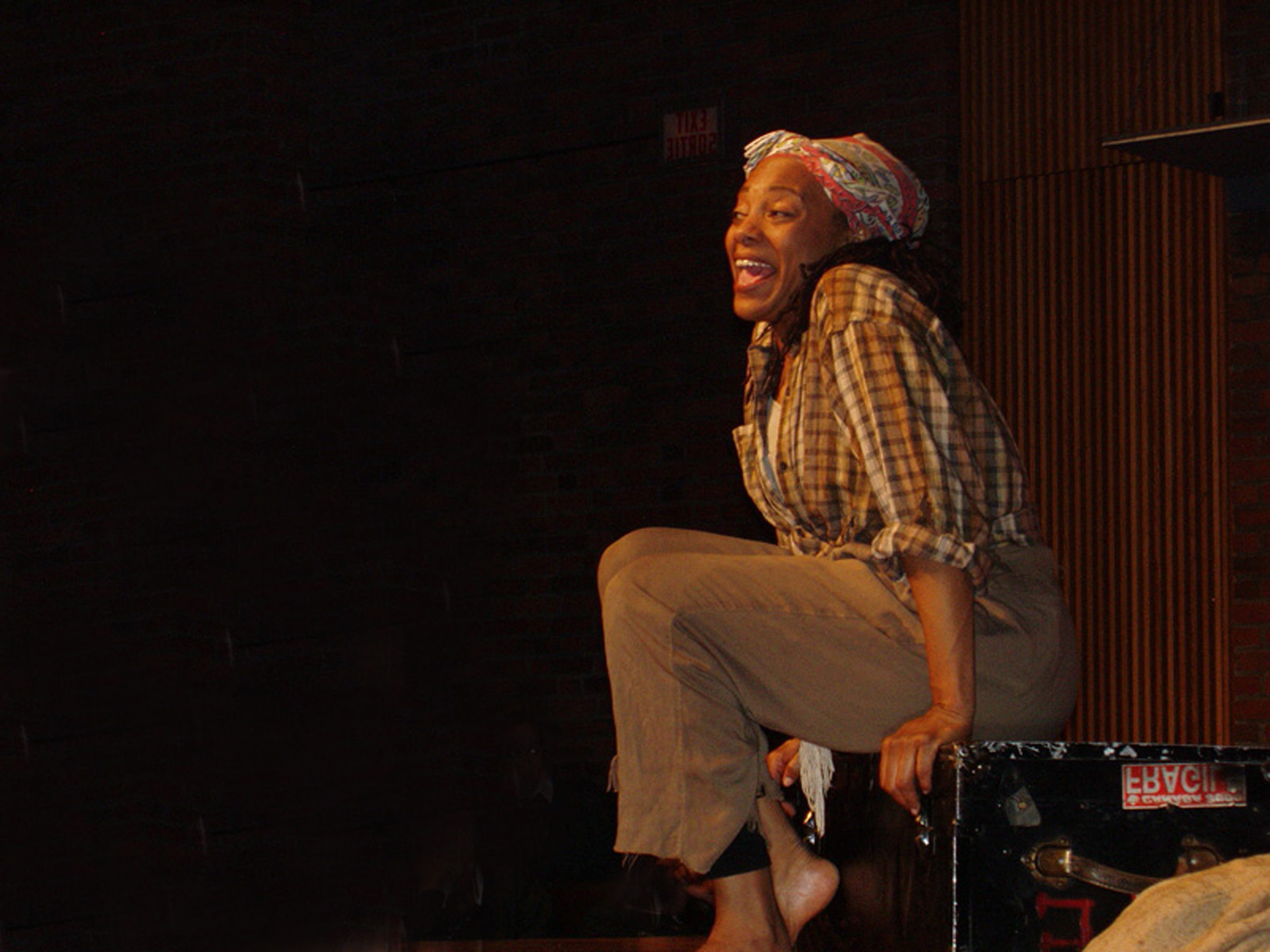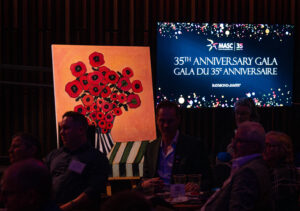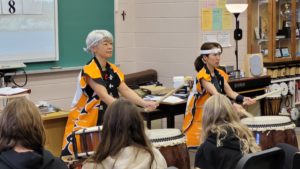Interview: Leslie McCurdy works to alleviate anti-Black racism through her art and activism
By Jessica Ruano | January 6, 2022

This interview was originally published on Apt613.ca
Leslie McCurdy has numerous stage, film, and TV credits but is best known for the one-woman plays that she wrote and has performed for over 20 years. The Spirit of Harriet Tubman, her first play, was a finalist for a Canadian Chalmers Award for Best New Play for Young Audiences. Her second play, Things My Fore-Sisters Saw, was filmed for TV and premiered on the Bravo Network in Canada in February 2006. In this interview, Leslie talks about relationships: between herself and her the women she represents onstage, between activism and art, and between racism, slavery and the economy.

Leslie McCurdy. Photo provided by MASC.
MASC: It is incredible (though not surprising!) that you’ve been successfully performing The Spirit of Harriet Tubman for over 20 years. What do you feel gives this particular story and your performance of it such staying power, especially in schools?
Leslie McCurdy: I have always been a little surprised at the response that I receive performing The Spirit of Harriet Tubman. I know that Harriet Tubman is a fabulous character to be recreating; she was such a formidable fighter for human rights as a woman and particularly a Black woman, but I don’t get to experience my performance live, so I can’t speak about it. I have been told that it is powerful and inspirational and shares so much information about Harriet Tubman as a person, so I humbly accept that. I know that I love performing it, so perhaps that resonates as well.
You are described as both an artist and an activist. For you, are these identities merely intertwined, or indistinguishable from each other? How does your experience as a Black woman influence your approach to art and activism?
My activism is born of my art. I literally tripped, fractured my hip, and fell into performing the way that I do. Having my druthers, I would have been a modern dancer in New York City, but fate had a different plan. I started performing Harriet Tubman because of that accident, and then discovered I was considered an artist for my work writing and performing the play. It was the questioning by students that followed performances and things occurring in the world around me that catalyzed my activism. I began connecting the legacy of slavery and racism with our world as it is today and pointing out that, in many ways, we haven’t come very far. It became my purpose to share some of my personal experiences and philosophies to illustrate what, in my belief, our world could be. That has now extended to my being an activist in my home community, working to alleviate anti-Black racism where it exists in various guises and institutions. Now, I create art specifically to address that.

A performance of The Spirit of Harriet Tubman at Harriet Tubman Elementary School in St. Catharine’s, Ontario. Photo provided by MASC.
In the documentary film “The Leslie McCurdy Story: On the Money,” currently streaming on CBC Gem, you talk about the relationship between racism, slavery, and the economy. We now have a Black woman—Viola Desmond—on our 10-dollar bill. What is the significance of this recognition of her legacy?
I’m not sure if the relationship between the economy and slavery/racism is something that was considered when Viola Desmond was selected to be the new face on our 10-dollar bill. It was primarily about getting a woman “on the money” and her sister, Wanda Robson and a historian, Graham Reynolds, worked hard to have her selected. I also don’t think that most people are cognitive of this relationship. It is not something that is readily taught in school curricula. Most people, outside of Nova Scotia, don’t even know of the civil rights stance that Viola took. I know that the orientation of the bill, from horizontal to vertical, is supposed to be indicative of “a new direction” that Canada is going to take in becoming a world leader in civil and human rights, but there is still so much resistance, from the Prime Minister on down, to disrupting the institutions and practices that allow for the existence of racism, sexism, ableism, religionism, genderism, etc. because of the power dynamics built into our current economic model where the influence of money is inherent in all decisions made.
As a member of MASC, what do you gain through offering your workshops in schools and in the community?
Well, I get to be a working artist first and foremost, for which I am eternally grateful. It was one of MASC’s founders, Jennifer Cayley, who “discovered” me.
I have had opportunities to help students find their own voices. I remember one time, after a performance of my other play, Things My Fore-Sisters Saw, an Indigenous student came to talk to me at length about the history of her people having been erased, and I encouraged her to tell the stories. I explained that when I started, the history of Black people in Canada was also ignored/erased for the most part and how I believe my work helped to initiate changes to that. I told her that she could have the same impact in telling the stories of her people truthfully. After our conversation, a teacher told me that she had never self-identified as Indigenous before. Then there was the young man, who was said to be “troubled” and not very vocal, who stayed after all of the other students had left to tell me that The Spirit of Harriet Tubman was, in his opinion, a “beautiful play” and how inspirational it was to him. The supervising teacher told me that speaking to a stranger like that was not something that he did readily or easily. Knowing that my work can impact children in this way is what keeps me going.

Leslie in The Spirit of Harriet Tubman. Photo provided by MASC.
Why do you think it’s important for our local community to have access to professional artists?
Artists, whether professional or not, often view the world differently and/or have the courage to use their art to speak to concepts that aren’t easily heard/understood otherwise. The “professional” part comes when others value their work and pay for it. The value of arts in a community is hard to measure and I hate to imagine what our world would be like without artists, of all genres, trying to challenge us to be better versions of ourselves. It is art that keeps us grounded in our humanity. In my humble opinion, we need a lot more grounding lately, thus a lot more art.
Latest News
View All Articles



